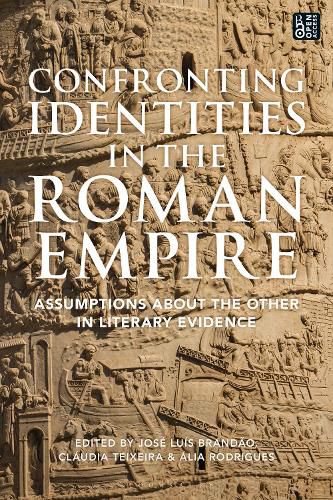Readings Newsletter
Become a Readings Member to make your shopping experience even easier.
Sign in or sign up for free!
You’re not far away from qualifying for FREE standard shipping within Australia
You’ve qualified for FREE standard shipping within Australia
The cart is loading…






Drawing together new research from emerging and senior scholars, this open-access volume presents an up-to-date discussion of these notions in the ancient world, both at the individual and community level. This open access edited volume offers insights into how ancient texts, ranging from the historical and biographical to the oratorical and epistolary, demonstrate the negotiation and renegotiation of otherness, identity and culture.
Roman identity emerged as the result of multiple interactions with real and imagined Others. This volume analyses specific case studies and networks of inclusion and transformation that informed concepts of unity, otherness and cultural identity. In part one, contributors discuss Roman perceptions of communal identity, considering ethnic, geographical, religious, occupational and social factors that informed various ideas of belonging and exclusion. Part two goes further by examining ancient texts from the perspectives of non-Romans, in addition to famous Roman figures who deviated from traditional models of identity.
The ebook editions of this book are available under a CC BY-NC-ND 4.0 licence on bloomsburycollections.com.
$9.00 standard shipping within Australia
FREE standard shipping within Australia for orders over $100.00
Express & International shipping calculated at checkout
Drawing together new research from emerging and senior scholars, this open-access volume presents an up-to-date discussion of these notions in the ancient world, both at the individual and community level. This open access edited volume offers insights into how ancient texts, ranging from the historical and biographical to the oratorical and epistolary, demonstrate the negotiation and renegotiation of otherness, identity and culture.
Roman identity emerged as the result of multiple interactions with real and imagined Others. This volume analyses specific case studies and networks of inclusion and transformation that informed concepts of unity, otherness and cultural identity. In part one, contributors discuss Roman perceptions of communal identity, considering ethnic, geographical, religious, occupational and social factors that informed various ideas of belonging and exclusion. Part two goes further by examining ancient texts from the perspectives of non-Romans, in addition to famous Roman figures who deviated from traditional models of identity.
The ebook editions of this book are available under a CC BY-NC-ND 4.0 licence on bloomsburycollections.com.